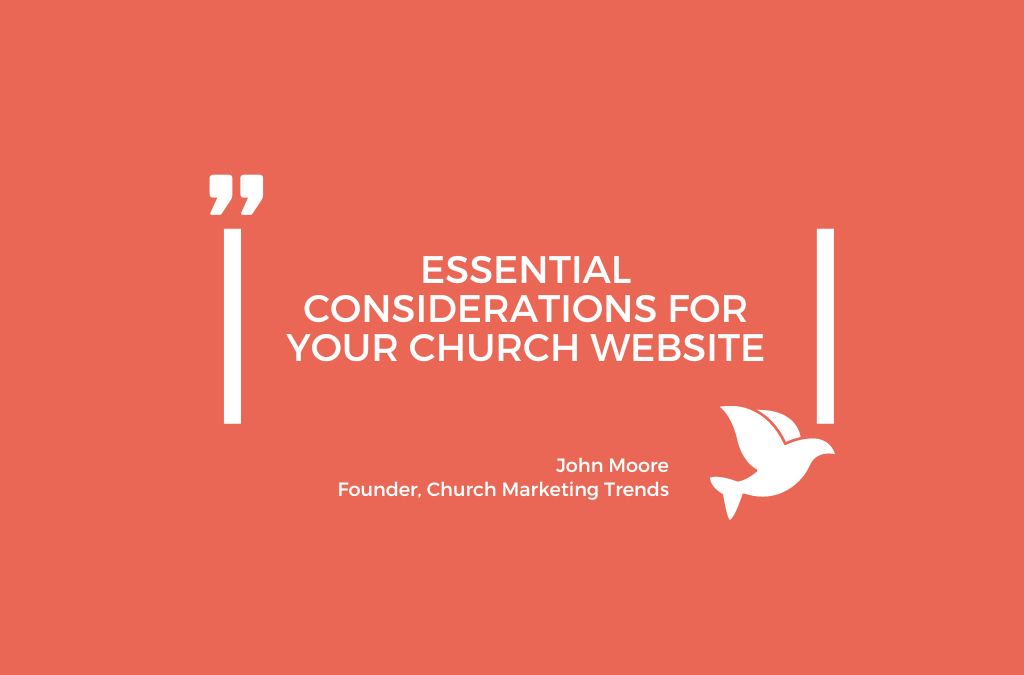Before you start developing your church’s new website, there are six critical factors you should be well-acquainted with. These insights will streamline the process and help your church save valuable time and resources.
1. The Must-Haves
Building a website for your church is essential for reaching a broader audience and communicating vital information. Start by understanding the basics: a domain name and hosting account. The domain name is your unique web address, and hosting provides the server space for your website’s files and data.
You have two main options for website creation: website builders like Wix or Squarespace, and Content Management Systems (CMS) like WordPress. Website builders offer user-friendly interfaces and pre-designed templates for quick setup, including domain and hosting services, but they have limited customization and control. WordPress, a popular CMS, offers greater control and customization, allowing you to create and manage your site without extensive technical skills. Your choice will depend on your church’s specific needs and resources.
2. The Budget
Establishing a budget is crucial when investing in a church website. Balance your needs with financial constraints to avoid overspending or compromising on quality. Consider factors like the site’s size, complexity, customization needs, and ongoing maintenance. This approach helps your church make an informed investment decision.
3. The Purpose
Define the purpose and goals of your website before development begins. Your website should promote the word of God, provide church information, facilitate congregation communication, and organize activities. Clearly outline the desired features and how they will support your objectives.
4. The Brand
Your church’s brand includes more than just a logo or color scheme—it reflects the overall look, personality, and culture of your church. Ensure your website authentically represents your unique brand, as it often forms the first impression. Provide clear design guidelines to effectively convey your church’s identity.
5. The Contract
If you’re hiring someone to create your website, protect your interests with a well-defined contract. A comprehensive contract should outline payment schedules, milestones, and project deliverables. Milestones serve as progress markers, and deliverables are the tangible or intangible outcomes of the project. A robust contract can save your church time and resources.
6. The Maintenance
Plan for ongoing content updates after launching your website. CMS platforms like WordPress and website builders like Wix and Squarespace make content modifications easy without coding knowledge. Alternatively, consider hiring a professional web developer for content maintenance if necessary.
Understanding these six crucial aspects will pave the way for a successful and meaningful church website. If you have any questions about this blog, feel free to reach out to me at john@assurestudios.com.

